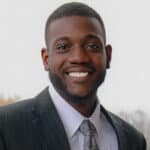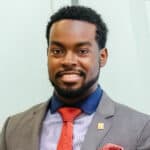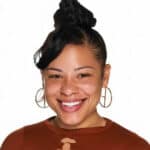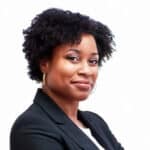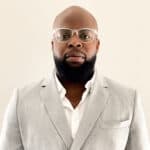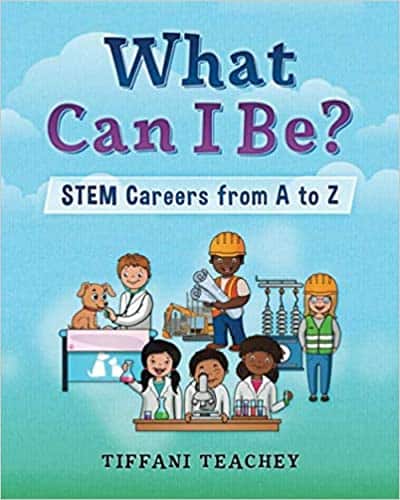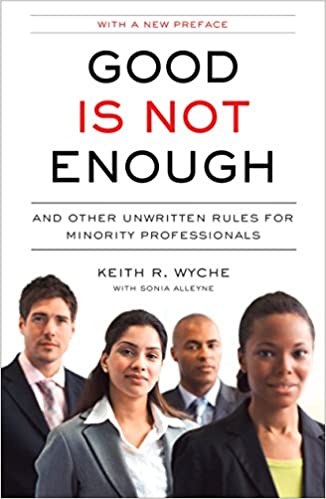
Black engineers often face significant challenges on their path to career success. In honor of Black History Month, the Engineering Management Institute is proud to host a panel of accomplished Black engineers who share their insights on achieving success in the engineering field. EMI’s facilitator, Matthew Douglass, leads the discussion, posing critical career questions to the panelists and encouraging active participation from all the attendees.
Engineering Quotes:
Below Are Some of the Questions We Asked the Black History Panelists and the Answers They Provided:
What Are Some of the Specific Challenges You Face as a Black Engineer?
- Black engineers often feel the need to constantly prove themselves and their worth to maintain their position or advance, which can be a significant challenge. This is a common issue for minority professionals in various industries, as highlighted in the book “Good Is Not Enough and Other Unwritten Rules for Minority Professionals” by Keith R. Wyche. ~ Richard A. Negri, MSCE, P.E.
- Being the only Black female civil engineer can be a significant challenge, along with balancing work and family responsibilities. Additionally, the need to “code switch” and present oneself differently at work can be difficult and requires a certain level of adaptability. ~ Ebony Larry
What Do You Wish You Had Done Differently During College to Better Prepare for Your Life and Career?
- Understanding the importance of mentorship cannot be overstated, as having someone to guide and advise you can help navigate the transition from college to a professional career. Mentors can provide valuable insights into industry trends, recommend courses to take, and offer guidance on important decisions. Students are encouraged to seek out mentors, whether it be an upperclassman or a professional in their field, as it can greatly benefit their career development. ~ Sade Luwoye
- Mentoring is a valuable and symbiotic relationship where both the mentor and mentee can benefit from each other’s skills and perspectives. It’s important to understand that one person cannot fulfill all mentoring needs, and seeking out different types of mentors, such as personal or financial mentors, can be beneficial. Mentors can also provide opportunities for the mentee to expand their thinking and offer assistance in return, creating a mutually beneficial relationship. ~ Triston Young
- I wish I could have pursued a study that was connected to my interests. Although I am uncertain if it could have been integrated into my curriculum, I regret not exploring this avenue during my school years. ~ Tiffani Teachey
- If I could go back and make different choices during my time at Howard University, I would have changed my major to architecture. I realized my passion for it toward the end of my freshman year, but I chose to continue with my current major instead of switching. If I had pursued architecture, I believe it would have brought me more fulfillment and satisfaction in my career. ~ Ebony Larry
- Financial literacy is crucial for success in life and career, particularly in funding education and negotiating salaries. It’s important to take financial literacy classes early on to become aware of the cost of higher education, which can have a significant impact on post-graduation quality of life. ~ Richard A. Negri, MSCE, P.E.
Have You Experienced Any Racial Disparities in the Workplace, and if So, What Are Your Suggestions for Addressing Them?
- The burden of proof often falls on the complainant when reporting disparities, and this can be difficult when reporting to individuals who may not understand or believe their perspective. A solution to combat these issues is to bridge the understanding gap between different races through a more direct approach, such as education from experts like Jane Elliot. ~ Richard A. Negri, MSCE, P.E.
- I have had a positive experience as a Black employee at their firm, feeling completely supported and benefiting from initiatives such as a Black employee network group and support for passion projects. My challenges in the workplace are more related to ageism and constantly proving myself as a young leader, rather than primarily based on race. ~ Triston Young
- I, as a female in a male-dominated field, have experienced instances where I have had to assert my competence and capability to be taken seriously. As a double-minority, there is a risk of being underestimated or relegated to administrative tasks, and it is important to speak up and demonstrate one’s competence. I am currently pursuing a Ph.D. in my field. Women, especially Black women, face challenges in male-dominated fields and have to constantly prove their competency and fight against stereotypes such as the “angry Black woman.” However, they must remain determined to get the job done and work together to achieve success. ~ Tiffani Teachey
- Having allies can be a valuable resource in combating challenges related to race, gender, and age in the workplace. Colleagues who can validate one’s work ethic and provide support can make a significant difference in overcoming obstacles faced by individuals who fall into marginalized categories. ~ Sade Luwoye
- Microaggressions can have a severe impact on one’s mental health, and it’s important to recognize them and address them appropriately. It’s also important to build confidence and not feel the need to prove oneself in every situation, as one’s work should speak for itself. Having allies can also help combat these issues. ~ Ebony Larry
What Is Your Opinion on the Stereotype of Engineers, and Do You Feel Pressure to Conform to It in Your Work? How Do You Navigate This in the Workplace?
- I, an introvert with extroverted tendencies, feel that I do not conform to the stereotypical engineer who is introverted, regimented, and by the book. However, I have experienced microaggressions and disparities in the workplace, such as being asked if I played basketball, which highlights the need for more understanding and open-mindedness. I believe that having personal relationships with people helps me in my career, but I also recognize the need to find a balance between being myself and reading the room. Ultimately, I hope that differences can be set aside for the common goal of achieving a project. ~ Richard A. Negri, MSCE, P.E.
- Stereotypes exist in every profession, including engineering. It’s important to educate and encourage diversity in young minds to break down these stereotypes. Also, having multiple facets of oneself can enhance creativity and productivity in the workplace. ~ Tiffani Teachey
- The stereotype of an engineer as a nerdy white man with a pocket protector is prevalent and can be harmful. However, it is important to be a trailblazer and educate children about the diversity within the engineering field. In the workplace, it is important to pay attention to how people react to you and conduct oneself in a way that is true to oneself while also being mindful of others. Building relationships and being open to resources are important for success. ~ Ebony Larry
- The lack of diversity in the engineering field makes it difficult for individuals who do not fit the stereotypical engineer mold to feel comfortable and respected in their roles. Code-switching and feeling the need to conform to certain standards of dress and behavior can be a common experience. However, sometimes standing out and being yourself can lead to recognition and opportunities for advancement. ~ Triston Young
What Advice Do You Have for Future Engineers Looking To Succeed in Their Careers?
- To achieve financial success, it is essential to learn and practice financial literacy, find mentors through professional organizations, and read relevant books. However, it is not enough to rely solely on these resources; consistent effort and dedication are necessary to attain financial success. ~ Richard A. Negri, MSCE, P.E.
- Joining professional organizations in your field, such as IEEE for electricals or other industry-specific groups, can provide valuable opportunities to learn about the industry and seek mentorship. Networking and connecting with like-minded individuals through these organizations can also help advance your career and enhance your knowledge and skills. ~ Sade Luwoye
- To grow in your career, it is important to continuously learn and improve your skills. Do not be afraid to explore different areas of interest or switch career paths if it means finding a job that brings you satisfaction and happiness. Remember that your happiness and comfort are essential for long-term success, and being a lifelong learner can open up new opportunities for growth and advancement. ~ Ebony Larry
- hen considering a new company to work for, focus on the culture aspect and ask for feedback from non-HR staff to gain a more genuine understanding of the company’s values and atmosphere. Be aware of the ever-changing landscape of the industry and prepare for changes, including the focus on diversity, equality, and inclusion. Embrace constructive criticism and use it to improve yourself and your career. ~ Triston Young
If You Could Give Advice to Your Past Self, What Would It Be?
- It is essential to prioritize mental and physical health, especially when navigating challenging work environments. Seeking therapy can provide valuable support in dealing with the psychological and emotional impact of work-related stress and discrimination, particularly in predominantly white workspaces. It is important to recognize the impact of external factors on mental health and take the necessary steps to prioritize self-care and well-being. ~ Ebony Larry
- The importance of seeking mental health support and being prepared for the mental health challenges that come with being a minority in predominantly white spaces cannot be overstated. Pursuing financial literacy, building a strong professional network, pursuing licensure early, and being aware of the delicate balance between confidence and arrogance are also important factors for success. ~ Richard A. Negri, MSCE, P.E.
How Can You Strike a Balance Between Your Work and Personal Life?
- Instead of focusing on achieving a work-life balance, one should aim for work-life harmony or integration. The term “balance” implies an equal distribution of time and energy between work and personal life, which can be difficult to achieve. However, by integrating both aspects of life and finding ways to harmonize them, one can create a more sustainable and fulfilling lifestyle. This involves finding ways to incorporate personal passions and hobbies into work and vice versa, as well as setting boundaries and prioritizing self-care. ~ Tiffani Teachey
More Details in This Discussion…
About the Panelists:
Richard A. Negri, MSCE, P.E. – Principal Engineer at Geoterra Engineering & Construction Consultants
Richard Negri is a licensed civil engineering professional with experience in engineering design, project management, and construction management. He successfully coordinates, contracts, manages, designs, and provides technical oversight during the construction of projects in both the private and public sectors. Richard serves on multidisciplinary design and construction project delivery teams (PDT), routinely developing and/or reviewing the statement of works (SOW) for project design requirements.
Triston Young – Project Manager at Jacobs
Triston is a project manager with more than 10 years of experience in engineering and construction management of design-build projects, upgrades to existing facilities, and engineering services during construction (resident engineering, QA/QC, and design management). Triston also has managed interdisciplinary teams and has experience with nearly all facets of engineering and construction activities for projects in the water/wastewater, healthcare, and federal markets. Triston holds a Bachelor of Science in Civil Engineering from Morgan State University in Baltimore, Maryland.
Ebony Larry – Water Resource Program Manager at UMD – Facilities Management
Ebony Larry is a wife, mother, civil engineer and entrepreneur. She began her career in Water Resource Engineering with her experience including design and construction management for a variety of water/wastewater infrastructure projects such as treatment facilities, pumping stations, pipe replacements and trench-less technologies. In early 2021, Ebony took a break from engineering to explore her passion in education and completed an accelerated MAT program at Bowie State University. She will graduate with a Master’s in Teaching this spring. Ebony was recently appointed as Water Resource Program Manager for the University of Maryland College Park. Her role is to manage water consumption and conservation on the University’s campus specifically as it relates to operations and maintenance of HVAC equipment.
Tiffani Teachey – Sr. Mechanical Engineer | STEM Advocate | TEDx International Speaker
Tiffani Teachey is a senior mechanical engineer, science, technology, engineering, and math (STEM) advocate, TEDx international speaker, and international best-selling author of the children’s book “What Can I Be? STEM Careers from A to Z” and two women empowerment books. She is the host of the Read It Right Radio Show on WDRBmedia. Tiffani is the owner of Thrive Edge Publishing and owner/publishing consultant of Inspired Authors Publishing. She helps industry and business leaders publish children’s books about their field to inspire children to choose the same path.
Sade Luwoye – Systems Engineer | Entrepreneur | Inclusive Product Management Fellow ’23
Sade is a co-founder of TribeMeets, a dating and networking platform that connects the African community. With her passion for diversity and inclusion, she identified the pervasive inequality in the science, technology, engineering, and mathematics (STEM) fields and launched the Win in STEM Podcast to address this issue. Through this initiative, she strives to increase the representation of minorities in STEM by creating a safe space for discussions and empowering underrepresented groups.
About the Facilitator:
Matthew Douglas – Engineer and Operations Leader
Matthew is an operations leader with a demonstrated history of dedication and success in both public service and private industry. He is a strong, well-spoken engineering professional with a Bachelor of Science in Civil Engineering from Morgan State University. After a few years of working with consultant engineering firms, Matthew switched gears to work within local government. There he specializes in managing projects, contracts, and construction services to maintain and improve public infrastructure.
Books Mentioned in This Discussion:
What Can I Be? STEM Careers from A to Z
Good Is Not Enough and Other Unwritten Rules for Minority Professionals
Sources/References:
NSBE – National Society of Black Engineers
IEEE
Connect with Richard Negri on LinkedIn
Connect with Triston Young on LinkedIn
Connect with Ebony Larry on LinkedIn
Connect with Tiffani Teachey on LinkedIn
Connect with Sade Luwoye on LinkedIn
Connect with Matthew Douglas on LinkedIn
To your success,
Anthony Fasano, P.E., LEED AP
Engineering Management Institute
Author of Engineer Your Own Success








